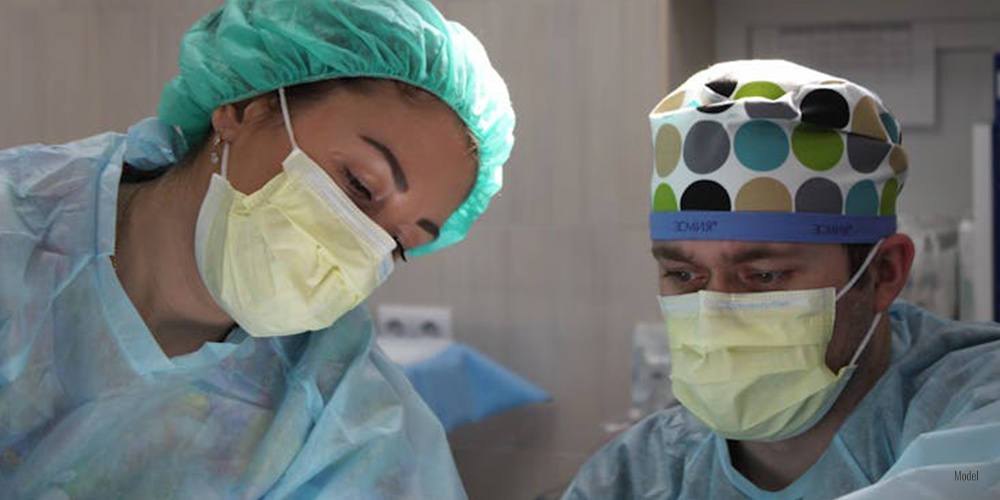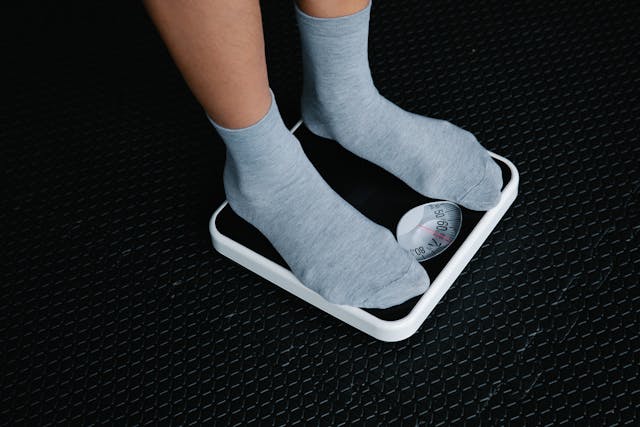The Impact of Weight Fluctuations on Plastic Surgery Results

Feature image Alt text: Close-up of two surgeons with masks and caps performing a procedure.
Plastic surgery is a reliable way to enhance physical appearance and improve self-confidence. However, maintaining a stable weight after surgery is important to achieve long-lasting and satisfying outcomes. When you undergo a cosmetic procedure, significant weight gain or loss can undo the improvements, altering your body’s proportions and skin elasticity. These changes may impact how your body heals and settles into its new shape. For example, fluctuating weight can lead to sagging skin or uneven fat distribution after liposuction or a tummy tuck. Weight stability should be part of your post-surgery plan to achieve the desired plastic surgery results. This blog will discuss how weight changes affect specific procedures, why skin elasticity matters, and what steps you can take to maintain your results. By staying informed, you can maximize the long-term benefits of your cosmetic procedure.
How Weight Affects the Body Post-Surgery
Weight gain or loss directly affects how the body adapts after plastic surgery. Weight gain after procedures like liposuction may lead to fat returning in untreated areas. This can create uneven contours, diminishing the effectiveness of the surgery. On the other hand, significant weight loss can cause the skin to sag, especially after procedures designed to tighten and tone the body. For instance, a tummy tuck may appear undone if loose skin reappears. These changes can disrupt the harmony and balance of your post-surgery body. Fluctuations also influence the healing process. When the body adapts to a new weight, the skin and tissues may not properly settle into their surgical adjustments. This can prolong the healing phase and even lead to complications. Maintaining a stable weight can help protect the surgical enhancements, keeping the outcome closer to the intended result.

Significant weight gain or weight loss can directly impact your plastic surgery results. Alt text: A person in grey socks standing on a scale.
The Role of Skin Elasticity and Healing
Skin elasticity plays a significant role in determining how well your body adjusts after plastic surgery. Elasticity refers to the skin’s ability to stretch and return to its original shape. Weight fluctuations disrupt this process, making it difficult for your skin to adapt. For example, rapid gain stretches the skin, potentially leading to stretch marks or an uneven appearance. Significant weight can result in sagging, especially in areas treated with procedures like tummy tucks or facelifts. This can diminish the aesthetic improvements made during surgery. Healing is also affected when the skin is under stress from weight changes. Scars may stretch, and the surgical area may not settle evenly. To support good healing and maintain surgical outcomes, prioritize healthy skin through hydration, balanced nutrition, and skincare routines that promote collagen production. These steps help preserve the intended look after surgery.
Procedures Most Affected by Fluctuations
Some plastic surgery procedures are more sensitive to weight fluctuations than others. Liposuction is one such procedure, as weight gain after the surgery can cause fat to be redistributed to untreated areas. This can create an unbalanced appearance, undermining the results. Similarly, tummy tucks remove excess skin and tighten the abdominal area. The skin can stretch or sag again if you lose or gain weight significantly after the procedure. Breast surgeries, including augmentation and reduction, are also affected. Weight changes can alter the natural breast tissue, making implants or reductions look asymmetrical. Facial procedures like facelifts are vulnerable as well. Weight gain in areas like the jawline or cheeks can blur the defined contours created during surgery. Knowing how these fluctuations impact specific surgeries helps you plan for a lasting and satisfying result.
Maintaining a Stable Weight for Better Outcomes
Stable weight is a cornerstone of preserving the benefits of plastic surgery. Significant changes can compromise the improvements made during the procedure. For instance, weight loss after a breast augmentation can lead to a deflated appearance, while gain may alter the proportions created during liposuction. To maintain consistency, adopt a balanced diet rich in fruits, vegetables, lean proteins, and whole grains. While regular physical activity supports overall fitness, nutrition plays a crucial role in promoting weight stability and supporting lasting results. Avoid rapid loss methods or fad diets, as these can harm your skin’s elasticity and overall health. Consistency is key—small, sustainable changes make sticking to a healthy routine easier. Keeping a fitness journal or using a tracking app can help you monitor progress and stay motivated. By taking these steps, you protect the investment made in achieving your desired results.

It’s important to maintain a stable weight after surgery; however, you should avoid rapid weight loss methods and fad diets. Alt text: Blue plate and words Weight Loss in Scrabble letters on it, green leaf next to it.
Plastic Surgery Results: Why Consultations Matter
Consultations with your surgeon are the key to understanding how weight stability impacts surgical outcomes. During the initial meeting, surgeons assess your lifestyle, weight history, and future goals. This helps them determine whether you’re a good candidate for surgery and guide you on how to prepare. Achieving a stable weight for several months before surgery can lead to better long-term results. Surgeons also provide tailored advice on how to maintain your weight post-surgery. They may recommend dietary adjustments, exercise routines, or lifestyle changes to help you preserve the outcome. Following post-operative instructions, such as managing incisions and avoiding strenuous activities, is equally important. Open communication with your surgeon makes sure that your expectations align with what’s achievable. By collaborating with your surgeon and committing to stability, you can achieve more predictable and satisfying plastic surgery results.

Communication with your surgeon and regular consultations play a key role in achieving your desired surgery results. Alt text: Doctor with a stethoscope, a pen in his pocket, and a black watch.
Psychological and Emotional Impact of Weight Fluctuations
Weight fluctuations after plastic surgery can have an emotional impact. Gaining weight post-surgery may lead to disappointment, especially if it alters the results. Similarly, dramatic weight loss can leave individuals with sagging skin, creating frustration despite initial improvements. This emotional response highlights the connection between body image and physical changes. To avoid these challenges, focus on building sustainable habits rather than chasing perfection. Mindful eating, regular exercise, and stress management techniques help you maintain both your physical and emotional health. Additionally, seek support from professionals like dietitians or personal trainers to stay on track. Remember that plastic surgery enhances your appearance, but it’s not a substitute for maintaining a healthy lifestyle. A positive mindset and realistic expectations can help you stay motivated and confident.
In Conclusion
Achieving satisfying plastic surgery results requires more than undergoing a procedure. Weight stability plays a significant role in preserving the benefits of cosmetic surgery and helping your body adapt to the changes. Weight fluctuations can lead to sagging skin, uneven proportions, or disrupted healing, affecting the long-term success of the procedure. By maintaining a balanced diet, engaging in regular exercise, and consulting with your surgeon about realistic goals, you can maximize the impact of your surgery. Focus on sustainable habits that promote physical and emotional well-being. Plastic surgery is an investment in yourself, and adopting a proactive approach helps protect that investment. With informed decisions and consistent effort, you can enjoy the confidence and satisfaction that come with lasting results.




